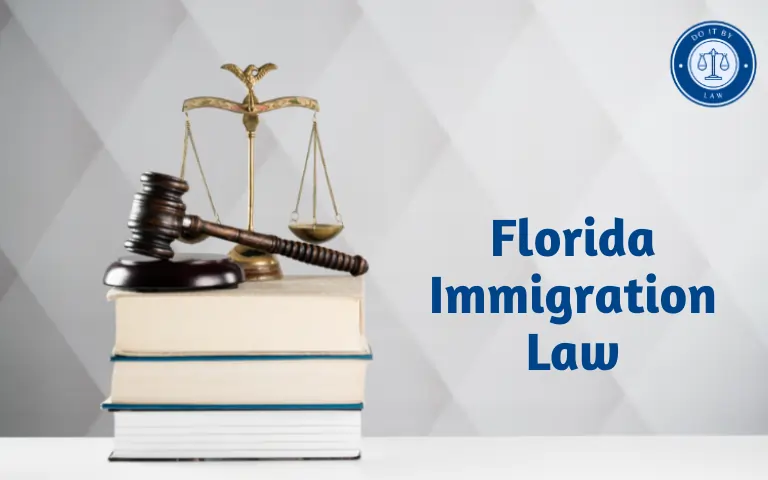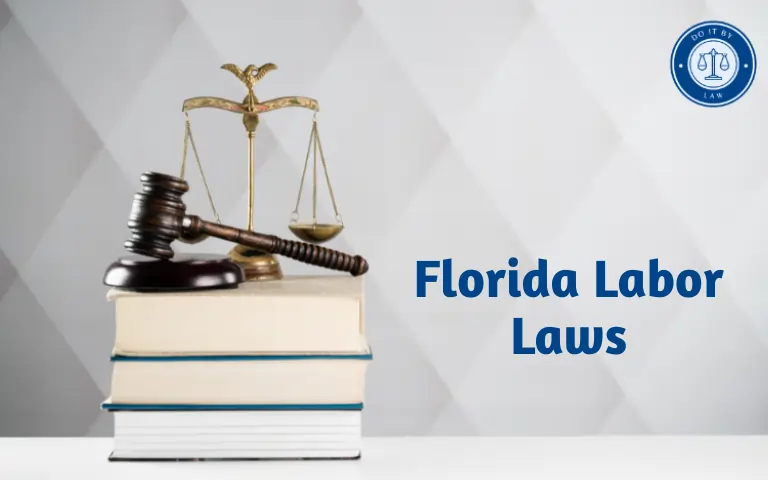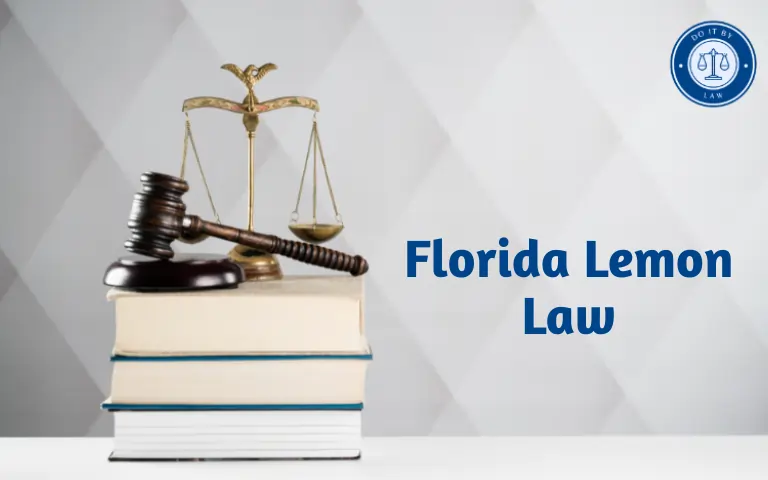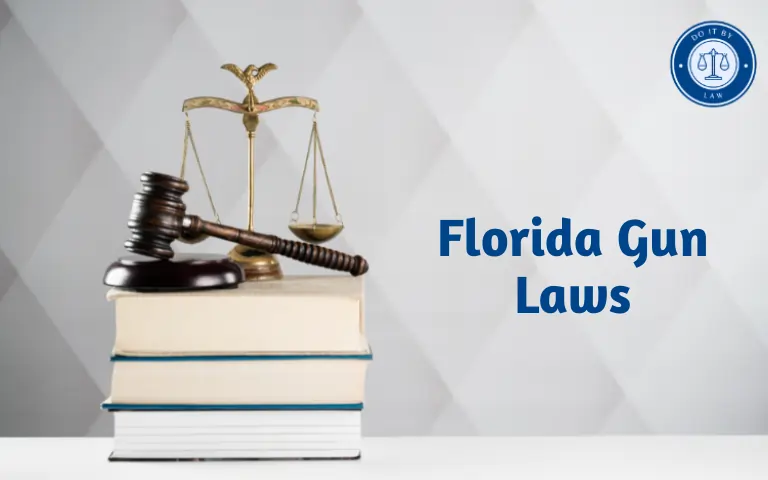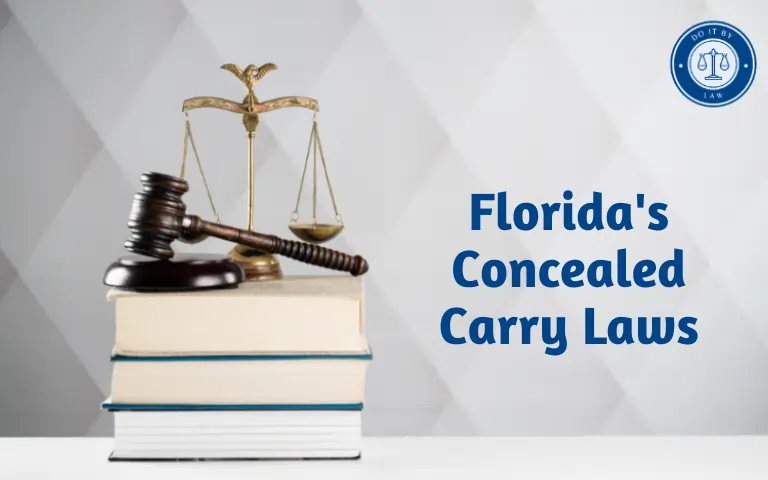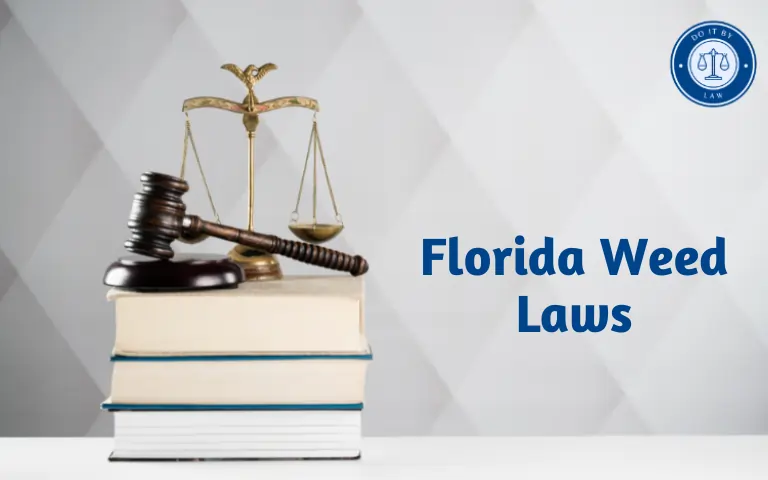Florida Immigration Law SB 1718: What You Need to Know in 2024
In 2023, Florida State enacted a stringent new immigration law called SB 1718 that took effect on July 1st, 2023. The controversial law aims to increase immigration enforcement and prohibits “sanctuary” policies at state and local levels. However, it has faced extensive criticism and legal challenges. This in-depth guide examines Florida Immigration Law SB 1718, looking at what it does, who it impacts, key details, penalties, changes, debates, and more as of 2024.
Who Does Florida Immigration Law Apply To?
Florida’s immigration law, specifically Senate Bill 1718 signed in May 2023, applies to a wide range of individuals and entities within the state. Here’s a breakdown:
Individuals:
- Undocumented immigrants: This primarily focuses on individuals residing in Florida without legal immigration status. The law imposes various restrictions on them, including:
- Employment limitations: Businesses with 25 or more employees are required to use E-Verify, making it harder for undocumented individuals to find work.
- Transportation restrictions: Transporting undocumented immigrants into the state can be a felony.
- Driver’s license limitations: Out-of-state driver’s licenses issued to undocumented individuals are no longer valid in Florida.
- Healthcare data collection: Hospitals may be required to collect and submit data on the costs of providing healthcare to undocumented individuals.
- Citizens and legal residents: While not directly targeted, some provisions may indirectly affect them, such as:
- Enhanced ID verification checks: Businesses may require stricter ID verification for all employees, not just those suspected of being undocumented.
- Potential chilling effect: Fear of immigration enforcement may discourage legitimate interactions with businesses and public services.
Entities:
- Businesses:
- E-Verify requirement: As mentioned, businesses with 25 or more employees must use E-Verify to confirm employee eligibility to work.
- Penalties for hiring undocumented workers: Businesses employing undocumented individuals can face fines and potential license revocation.
- Hospitals:
- Citizenship question on patient forms: Optional for hospitals accepting Medicare, but raises concerns about patient privacy and access to care.
- Data collection on undocumented patients: If implemented, it may raise similar privacy concerns and potentially discourage undocumented individuals from seeking necessary medical care.
- Local governments:
- Prohibited from issuing ID cards to undocumented immigrants.
- Invalidates out-of-state ID cards issued to undocumented immigrants.
It’s important to note that the law faces legal challenges, and some provisions are currently on hold as court cases proceed. Additionally, its long-term impacts and unintended consequences are still being debated.
For further information and in-depth analysis, I recommend consulting government websites, legal resources, and news articles from diverse perspectives.
While directed primarily at unauthorized immigrants, SB 168 also creates new obligations for legal residents and Florida employers. Critics argue it will lead to discrimination against all immigrant workers during hiring.
What Are Key Provisions of Florida Immigration Law?
Florida’s immigration law, officially known as Senate Bill 1718 and enacted in May 2023, is a highly contentious piece of legislation with a wide range of provisions. Here are some of its key points:
Employment:
- E-Verify: Mandatory for businesses with 25 or more employees to verify the immigration status of new hires.
- Penalties for hiring undocumented immigrants: Financial penalties and potential criminal charges for businesses employing undocumented workers.
Identification:
- Out-of-state driver’s licenses: Invalidates driver’s licenses issued to undocumented immigrants in other states.
- Local ID cards: Prohibits local governments from issuing ID cards to undocumented immigrants.
Healthcare:
- Citizenship questions on patient forms: Requires hospitals accepting Medicare to include a citizenship question on patient forms and collect data on the costs of treating undocumented immigrants.
Enforcement:
- Human smuggling: Increased penalties for transporting undocumented immigrants into the state.
- Florida Department of Law Enforcement (FDLE): Expands FDLE’s authority to cooperate with federal immigration enforcement.
- Relocation and transportation of migrants: Provides funding for programs that relocate or bus migrants to other parts of the US.
Other provisions:
- Prohibits harboring undocumented immigrants: Makes it a misdemeanor to conceal or support an undocumented immigrant intentionally.
- Sanctuary cities: Prohibits local governments from enacting policies that limit cooperation with federal immigration enforcement.
These measures give Florida some of the strictest immigration enforcement laws in the country. Advocates argue the requirements will reduce illegal hiring and unauthorized employment in the state.
Florida Immigration Law Enforcement Requirements
Florida’s immigration enforcement landscape is complex and has undergone significant changes recently. Here’s an overview of the key requirements currently in place, as of 2024:
1. E-Verify:
- Employers: Private employers with 25 or more employees are required to use E-Verify to verify the employment eligibility of all new hires. This requirement took effect on July 1, 2023.
- Public employers: All public employers, contractors, and subcontractors have been required to use E-Verify since 2021.
2. SB 1718:
This comprehensive immigration law, signed in May 2023, includes several key provisions:
- Hospitals: Hospitals accepting Medicaid must collect information on patients’ immigration status and submit reports to the state on the number of undocumented patients and the cost of their care.
- Transportation: Criminal penalties are established for transporting undocumented immigrants into the state.
- Law enforcement: The Florida Department of Law Enforcement (FDLE) is granted expanded authority to assist with federal immigration enforcement.
- Drivers’ licenses: Out-of-state drivers’ licenses held by undocumented immigrants are invalidated.
3. Other requirements:
- ID cards: Local governments are prohibited from issuing ID cards to undocumented immigrants, and out-of-state ID cards issued to undocumented immigrants are invalid.
- Penalties: Employers face increased penalties for knowingly employing undocumented workers.
The law prohibits any “sanctuary” policies that shield immigrants from enforcement or disclosure to federal agencies. All government entities must use their “best efforts” to support enforcement.
Who Florida Immigration Law Impacts
SB 1718 applies to all state and local government agencies in Florida including law enforcement, schools, and social services. Key groups impacted are:
Undocumented Immigrants:
- Increased fear and anxiety: The law creates an atmosphere of uncertainty and fear for undocumented immigrants, with potential criminalization for entering or residing in the state.
- Limited access to employment: Enhanced employer verification requirements and harsher penalties for hiring undocumented workers could make it difficult for them to find jobs.
- Reduced access to services: Invalidating out-of-state driver’s licenses and limiting local ID cards restricts their ability to access essential services like banking and healthcare.
- Potential family separation: Criminalizing “human smuggling” for crossing state lines with an undocumented family member could lead to family separation.
Businesses:
- Increased compliance costs: Mandatory E-Verify for all businesses with 25 or more employees will add time and money to the hiring process.
- Potential labor shortages: Restrictions on hiring undocumented workers could lead to labor shortages in industries like agriculture and tourism.
- Legal risks: The law exposes businesses to lawsuits if they unknowingly hire undocumented workers.
Local Governments:
- Limited ability to support immigrants: The law prohibits local governments from issuing ID cards to undocumented immigrants, restricting their ability to integrate into the community.
- Potential conflict with federal law: Some provisions of the law may face legal challenges due to potential conflicts with federal immigration laws.
Florida as a whole:
- Economic impacts: The law could harm Florida’s economy by potentially reducing the labor force and discouraging immigration, affecting industries like tourism and agriculture.
- Divisive social climate: The law has ignited heated debates and created a more polarized social climate in the state.
It’s important to note that the law’s long-term impacts are still unfolding, and its effectiveness and constitutionality are being challenged in court. The impacts will likely continue to be debated and evolve in the coming months and years.
What Are the Penalties for Violating Florida Immigration Law?
Florida’s new immigration law, SB 1718, imposes a range of penalties for different violations, with varying severity based on the specific offense. Here’s a breakdown of some key penalties:
For Undocumented Immigrants:
- Transporting into Florida:
- Less than 5 people: Third-degree felony, up to $5,000 fine, or 5 years in prison.
- 5 or more people or a minor: Second-degree felony, up to $10,000 fine, or 10 years in prison.
- Using false ID for employment: Third-degree felony, up to $5,000 fine, or 5 years in prison.
- Other potential offenses: Misdemeanors or administrative fines for violating various provisions like harboring or concealing undocumented immigrants, using an invalid out-of-state driver’s license, etc.
For Employers:
- Knowingly hiring undocumented workers:
- First offense: One-year probation with the Department of Economic Opportunity and potential loss of economic development incentives.
- Subsequent offenses: Increasingly severe fines and potential suspension or revocation of business licenses.
For Individuals:
- Aiding or abetting undocumented immigrants: Misdemeanor or felony depending on the specific offense.
- Providing false information to hospitals about immigration status: Misdemeanor for first offense, felony for subsequent offenses.
Note: These are just some of the key penalties, and the specific charges and punishments can vary depending on the circumstances of each case. It’s important to consult with an immigration attorney for accurate legal advice regarding specific situations.
Critics argue these stringent penalties essentially require employers to racially profile and over-scrutinize immigrant applicants to avoid potentially significant monetary sanctions.
Key Sections and Details of SB 1718
Some key components of SB 1718 include:
- Section 9 – Banning sanctuary policies that limit immigration enforcement actions
- Section 10 – Requiring the use of E-Verify for employment eligibility
- Section 11 – Mandating cooperation with federal immigration authorities
- Section 12 – Prohibiting restrictions on sharing immigration status information of inmates
- Section 13 – Suspending licenses of professionals disciplined for immigration law violations
So the law creates affirmative obligations across Florida’s public and private sectors to greatly expand immigration enforcement.
What Recent Changes or Proposed Changes Exist to Florida Immigration Law?
Since its initial passage, Florida’s immigration law has faced legal challenges and proposals for additional stringent measures:
- Injunction – Much of SB 168 was temporarily blocked in September 2022 by a Florida judge who found portions “void for vagueness.” An appeal overturned the injunction in December 2022.
- DACA – In January 2023, Governor DeSantis requested Florida agencies stop approving professional licenses for DACA recipients, creating workforce exclusions.
- Preemption Bill – A 2023 bill would ban any local government sanctuary policies that limit immigration enforcement cooperation.
- Licenses – 2023 bills proposed removing in-state tuition and driver’s licenses for unauthorized immigrants granted such access previously.
- Resettlement – A 2023 bill aims to prohibit refugee resettlement organizations from operating in Florida.
While encountering initial legal blocks, Florida continues expanding immigration restrictions through added legislation and gubernatorial directives. More stringent measures appear likely.
What Controversies and Challenges Exist Around Florida Immigration Law?
SB 168 generates extensive controversy and faces ongoing legal battles and activism:
- Discrimination – Opponents assert the requirements promote racial profiling and discrimination against Latinos and other immigrant groups.
- Labor Shortages – Agriculture and other industries reliant on immigrant labor face critical worker shortages under the law.
- Legal Challenges – Various lawsuits contest provisions as unconstitutional or violating federal law, though unsuccessfully so far.
- DACA Uncertainty – Eliminating professional licenses threatens the jobs and livelihoods of DACA youth granted legal protections previously.
- Economic Impacts – Critics argue enforcement deters tourism and reduces tax revenues from unauthorized immigrants while harming businesses.
- Federal Authority – Some contend state immigration enforcement infringes on federal jurisdiction over immigration laws.
From agriculture disruptions to claims of racial bias, Florida’s strict immigration policies under SB 168 generate ongoing conflict and controversy within the state.
Impacts on the Economy and Industries in Florida Immigration Law
SB 168’s broadened immigration enforcement has deep implications for major segments of Florida’s economy:
- Agriculture: Farm labor shortages are expected to worsen with fewer migrant workers.
- Tourism: The hospitality workforce still recovering from the pandemic could further decline.
- Construction: Already facing severe worker shortages, additional declines forecast.
- Healthcare: Doctor, nurse, and home health aide shortages may intensify.
- Education: Teacher recruitment/retention challenges are likely to increase.
So critical industries in Florida are bracing for amplified workforce challenges due to SB 168’s immigration provisions.
Looking Ahead: Future of Florida Immigration Law
Predicting the future of Florida immigration law is complex and uncertain, but I can offer some insights based on current trends and potential factors:
Possible Developments:
- Legal Challenges: As mentioned, SB 1718 faces legal challenges. If courts strike down parts of the law, it could significantly reshape its impact. Conversely, court rulings upholding the law could embolden further restrictive measures.
- Federal Policy: Changes in federal immigration policy under the new presidential administration could influence Florida’s approach. Potential areas of interaction include border security, guest worker programs, and pathways to citizenship.
- Political Landscape: Upcoming elections in Florida could shift the political landscape, impacting the balance of power and potentially leading to new legislative efforts focusing on immigration.
- Economic and Demographic Factors: Florida’s reliance on immigrant labor and its diverse population may lead to growing calls for more balanced or inclusive immigration policies in the future.
- Public Opinion: Public attitudes towards immigration can fluctuate over time. Shifts in public opinion could influence which policies hold political traction and gain legislative support.
Potential Scenarios:
- Continued Restrictive Measures: If legal challenges fail and public sentiment leans towards stricter immigration, Florida could see further restrictive policies targeting undocumented immigrants, potentially extending beyond SB 1718’s scope.
- Shift Towards Moderation: If legal challenges succeed or public opinion changes, Florida might move towards more moderate policies, potentially scaling back certain provisions of SB 1718 or enacting measures to protect and integrate undocumented residents.
- Federal Preemption: If major changes occur in federal immigration policy, they could preempt state-level measures like SB 1718, forcing Florida to adjust its approach to align with federal guidelines.
Important Caveats:
- These are just a few possible scenarios, and the actual future is difficult to predict with certainty.
- Unforeseen events or circumstances could significantly alter the trajectory of Florida’s immigration law.
- The future of immigration policy likely won’t be a linear progression in one direction but rather a dynamic interplay of legal, political, social, and economic factors.
Looking Ahead:
Florida’s immigration law landscape will likely continue to evolve in the coming years. Staying informed about legal developments, legislative proposals, and public opinion shifts will be crucial for understanding the direction of future changes. Engaging in constructive dialogue and advocacy across different viewpoints can also help shape Florida’s future immigration policies in a way that both upholds the rule of law and reflects the state’s diverse communities.
So while far-reaching in scope, SB 168’s full impact likely hinges on upcoming policy shifts and court rulings.
The Bottom Line
Florida’s expansive new immigration enforcement law SB 168 marks one of the toughest state measures of its kind but faces ongoing opposition and uncertainty. Those in Florida should closely monitor developments and understand their rights and responsibilities under evolving immigration policies.
Frequently Asked Questions About Florida Immigration Law
References:
SB 168 Bill Text SB 168 E-Verify FAQ Federal Injunction Order Appeal Order Staying Injunction DACA Guidance Change

